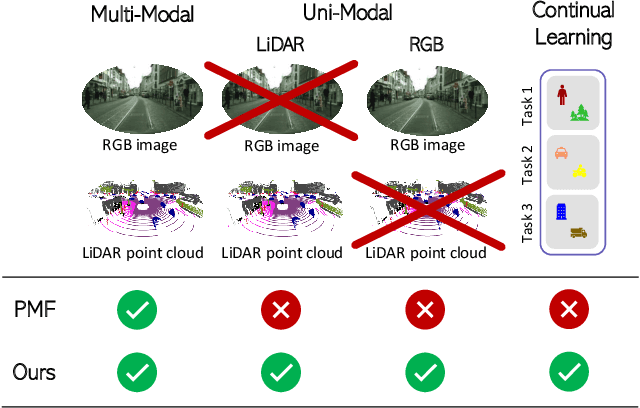Continual Road-Scene Semantic Segmentation via Feature-Aligned Symmetric Multi-Modal Network
Paper and Code
Aug 09, 2023



State-of-the-art multimodal semantic segmentation approaches combining LiDAR and color data are usually designed on top of asymmetric information-sharing schemes and assume that both modalities are always available. Regrettably, this strong assumption may not hold in real-world scenarios, where sensors are prone to failure or can face adverse conditions (night-time, rain, fog, etc.) that make the acquired information unreliable. Moreover, these architectures tend to fail in continual learning scenarios. In this work, we re-frame the task of multimodal semantic segmentation by enforcing a tightly-coupled feature representation and a symmetric information-sharing scheme, which allows our approach to work even when one of the input modalities is missing. This makes our model reliable even in safety-critical settings, as is the case of autonomous driving. We evaluate our approach on the SemanticKITTI dataset, comparing it with our closest competitor. We also introduce an ad-hoc continual learning scheme and show results in a class-incremental continual learning scenario that prove the effectiveness of the approach also in this setting.
 Add to Chrome
Add to Chrome Add to Firefox
Add to Firefox Add to Edge
Add to Edge